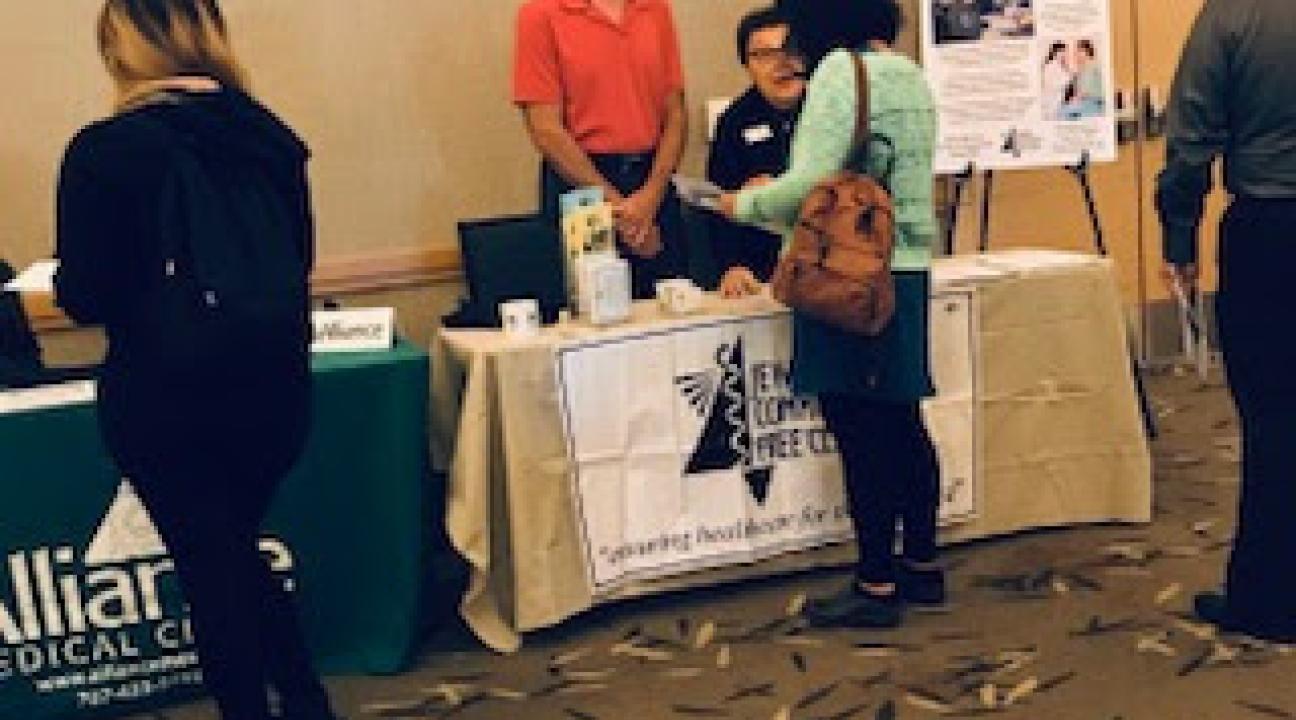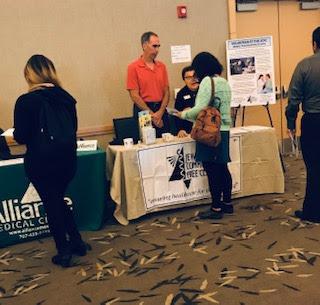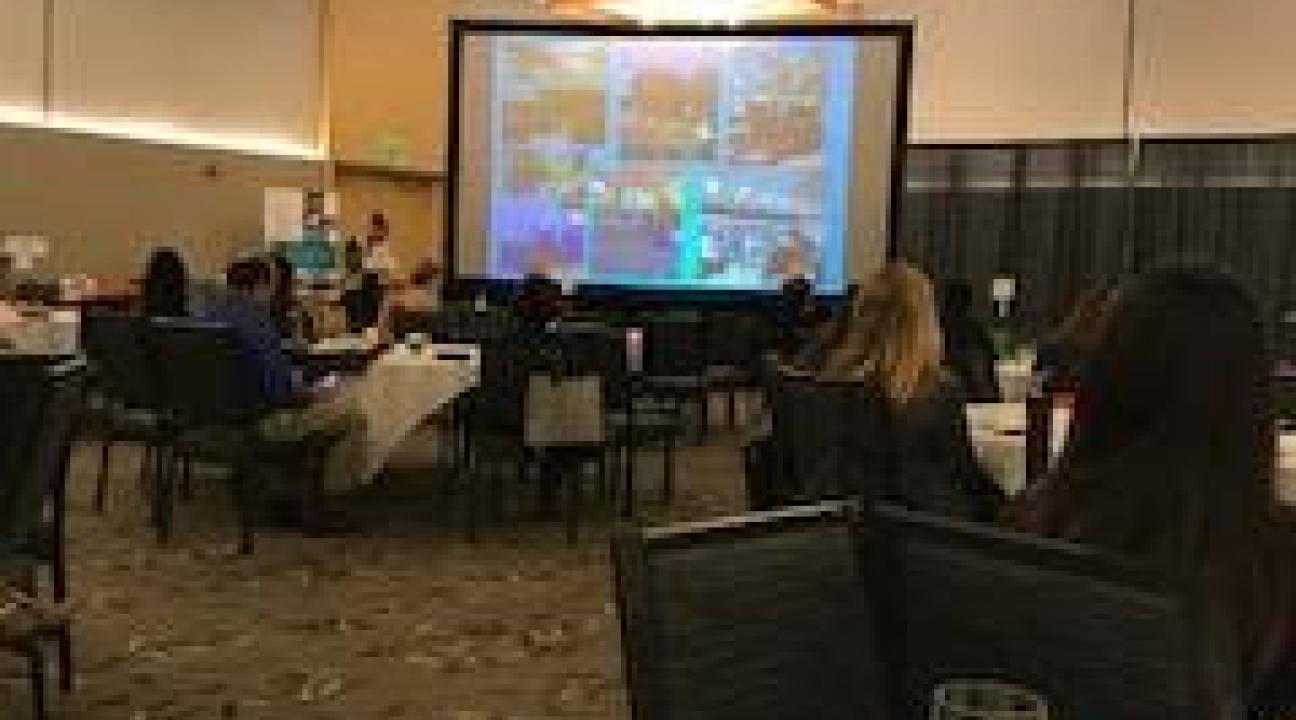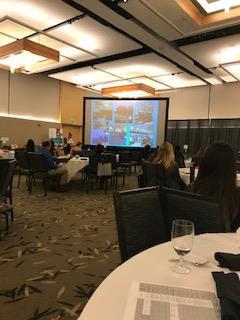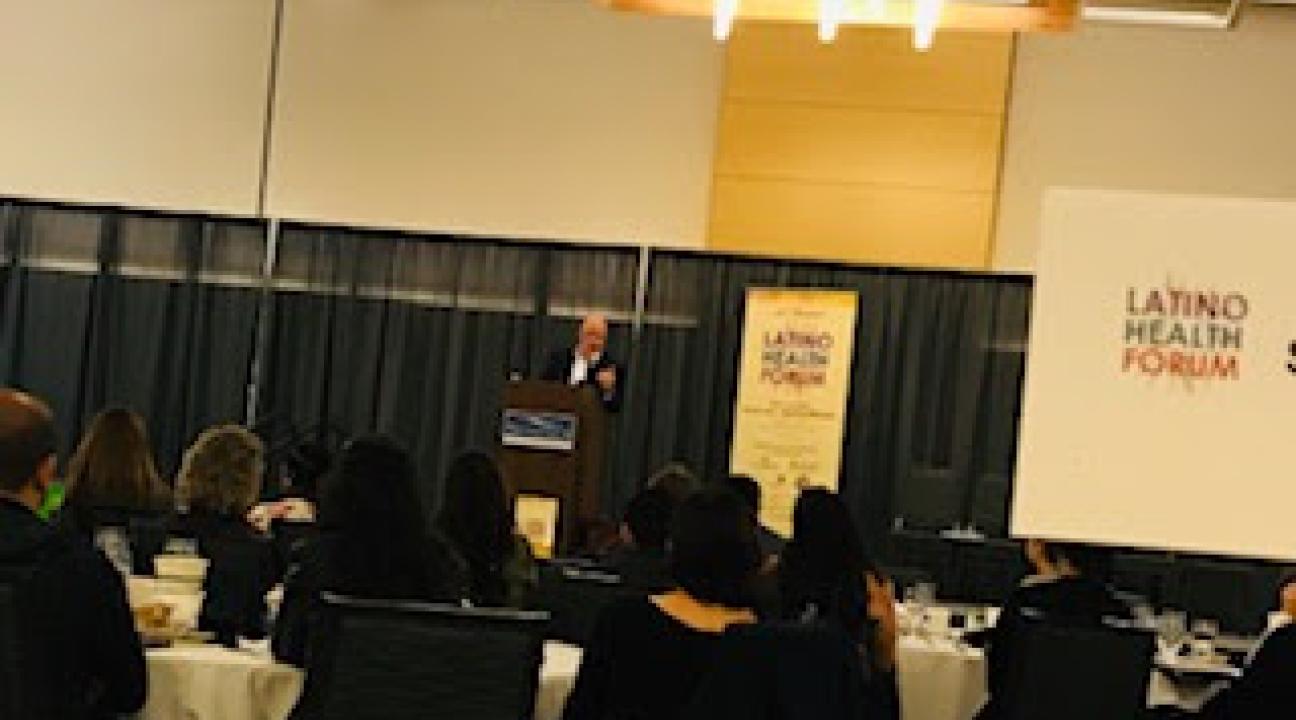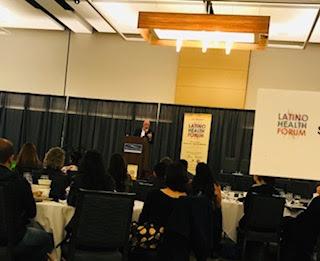Latino Health Forum 2018: Fire and ICE
“Racism is a root determinant of health,” explained Sarah Katz, MPH; Health Program Manager; Assessment & Epidemiology at the Office of Health Policy, Planning and Evaluation; Sonoma County Health Services. Ms. Katz presented a Powerpoint on racism and health equity at the 2018 Latino Health Forum. It included a demographic update and health indicators. She told us about the ways racism and health equity work against each other; and that although racism is not biological it is a root cause of ill health. It doesn’t matter if it’s intentional or unintentional; it is a result, according to Ms. Katz. She reminded us that the Portrait of Sonoma County demonstrated that clustering (of ethnic groups) did not happen by accident. She ended her presentation by posing the question: “How can we shift the narrative for health equity?”
The theme of the Latino Health Forum was appropriately, “Fire and ICE: Recovery and Resilience.” Just when you think maybe what happened last year with respect to the fires might have been an abnormality, it happens again in a different county but much worse and affecting the air quality of the entire Bay area. It begs the question: is this really the new normal in California? It’s certainly starting to feel this way.
With this reality in mind; reflecting on our own experiences in Sonoma County; how were the fires addressed in the Latinx community, and what effects did hey have on physical and mental health in Spanish speaking communities. How did we meet the health needs of the Latinx community affected by the fires?
Frank Chong, President of Santa Rosa Junior College and our own President, Judy Sakaki both talked about the need for Bilingual-Bicultural Medical Professionals and Latino Health Care Professionals; which is one of the goals of the Forum; to encourage students to enter medical professions. However, they both acknowledged the challenges for first generation and students of color to have a level playing field. As Dr. Sakaki stated, “There are people here and outside of this room, who are ready and willing to help you.” Dr. Chong talked about programs at the junior college; as well as the high school level like Healthcare Career Academy; that help prepare students for medical careers.
As with past forums there were workshops to attend; most of which were themed around disaster, recovery and to some extent immigration. I attended one on Fostering HOPE among the Latino Community after the fires. This was primarily about addressing mental health, stress, etc. California HOPE is a team of 10 bilingual crisis counselors who go out into the community and focus on emotional well being. They operate out of the Council on Aging. Since the fires, they have been working to move Latino people from crisis to resiliency. A large part of what they do is listen in order to determine how to help community members help themselves. The presenters, Stephanie Manieri and Bianca Pulido, pointed out that Latino families are generally very resilient and get their strength from the family. So, the job of CA HOPE is to give them the resources they need to include wellness in their recovery.
The second workshop I attended was hosted by the North Bay Organizing Project (NBOP). They talked about the work they did during the fires and what they were trying to accomplish. NBOP wanted to help Spanish speaking people, especially undocumented people, get the help they needed after their homes burned down. Using community organizing and organizational trust that they had already established; the power of personal stories; and the generosity of people all over the country, they were able to establish UndocuFund as a mechanism for financial support for undocumented fire victims. Forming partnerships with North Bay Jobs for Justice and the Graton Day Labor Center, they were able to work on their main goal to help people stay in Sonoma County. 5000 homes were lost in the County. There was already a housing crisis before the fires and now the situation is even worse. NBOP will continue to pursue housing issues along with rent control. One of there next goals will be to create a Tenant’s Union.
The Forum was well attended and in addition to many community members, SSU students, and faculty, we also got to hear from Congressman Mike Thompson and Supervisor Shirlee Zane.
Overall, reflecting on what Sonoma County has been through and how it has affected the Latinx community in particular has been so timely given what Butte County is going through now. We (as a community) have established many forms of emergency communications and evacuation plans, disaster relief, etc. Now local community based organizations understand what the needs are or will be in order to fully address all aspects of a disaster. Still, despite all of our efforts, nothing can prepare anyone for the devastation that goes with losing everything. In listening to the many speakers and the different ways the needs of the community were met; there is no question that we could not have served the people affected without the generosity of people who cared and were able to donate. UndocuFund alone raised 6 million dollars. Whether we as a community can continue to handle these disasters in the long term is a debate for another day; in the meantime it’s reassuring to know that we can come together to take care of those who need help. We know that the struggle for many individuals and families continues; thus we must ensure they get the help they need and strive to improve our responses to disasters in the future.
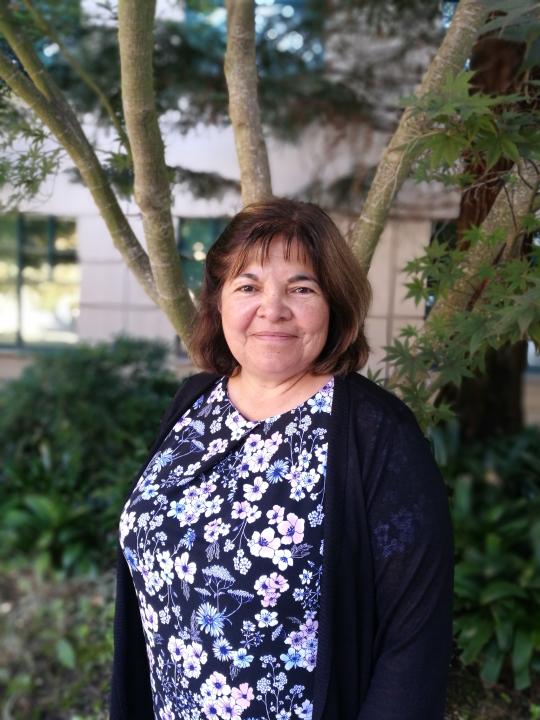
Author: Caroline Bañuelos


